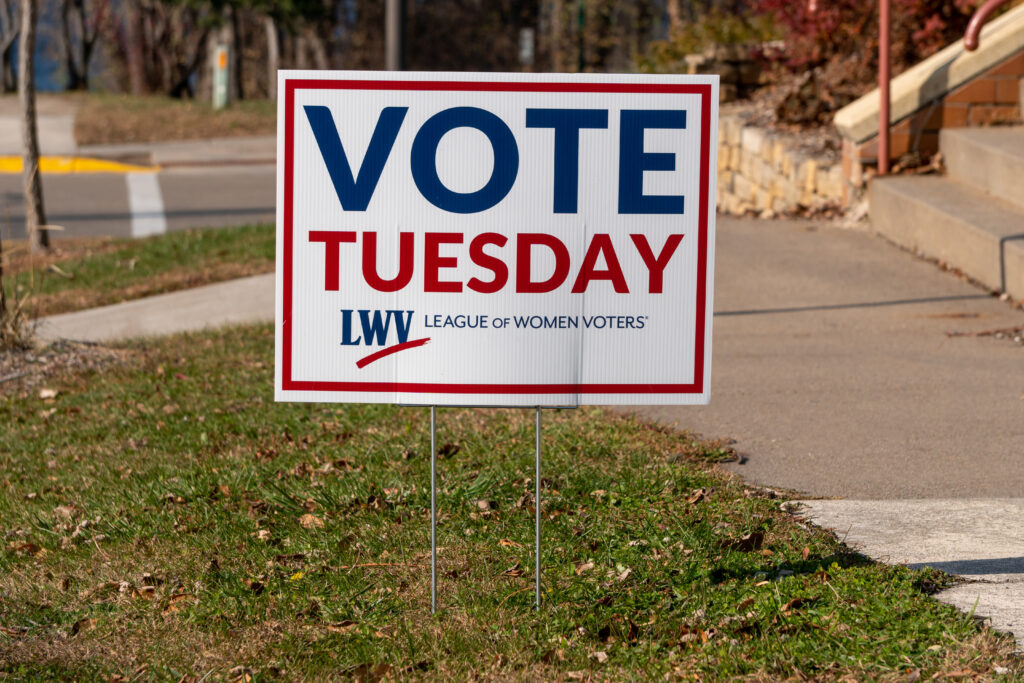HousingForward Virginia would like to thank the League of Women Voters of Virginia for their donation of $10,000 in support of the Virginia Zoning Atlas. This funding will be used to support the completion of the Richmond region’s incorporation into the Virginia Zoning Atlas slated for Fall 2024.
The FWD #G29 • 845 Words
by Alice Tousignant, LWV-VA
The League of Women Voters is taking a stand for housing affordability in Virginia.
When you think about the League of Women Voters (LWV), you most likely see it as an organization that defends and strengthens voting and elections, not as an advocate for affordable housing. That’s partly true— voting and elections are its primary focus, but the LWV also advocates for many other public policy issues. Today, that includes housing.
However, the LWV cannot advocate on any issue unless there is an official position at the national, state, or local level. The LWV of the United States (LWVUS) supports scores of issues under the headings of Representative Government, International Relations, Natural Resources and Social Policy. The latter includes Healthcare, Criminal Justice, Fair Housing, and Urban Policy to name a few.
Don’t forget the LWV is over 100 years old. That’s a lot of time to develop positions on many issues!
The LWV of Virginia (LWV-VA) also has its own positions that specifically relate to Virginia, ranging from Campaign Finance to Gun Violence Prevention and Education. The LWV-VA can and does advocate for all of them.
When I joined the LWV in 2017 after a 40-year career in housing, my intention was to get more involved in voting and elections. That did happen, but initially I was focused on voter registration in low-income communities, including public housing. What I learned about my League colleagues during my first year is that equity and justice are among their top priorities—and that they have an insatiable appetite to learn about new issues.
Arriving at an official LWV position on an issue is not an easy ride. It involves a two-year study where all sides of the issue are examined and researched. A report is written and presented to the 15 local Leagues in the state for members to review, discuss and reach consensus on. The process is designed to educate members on the ins and outs of the policy to ensure they have the necessary information to be effective advocates on the issue.
In April 2018, a New York Times article based on Mathew Desmond’s Eviction Lab research revealed that the City of Richmond had the second highest eviction rate for cities its size in the nation. Several other Virginia cities were in the top ten, including Hampton, Newport News, Norfolk and Chesapeake.
Along with Desmond’s book Evicted, the article spurred the LWV of Metro Richmond to form a new Affordable Housing Committee. The group intended to advocate for solutions to the eviction crisis, but soon discovered there was no LWV-VA position on affordable housing. This led to a request to the LWV-VA to undertake a study in order to develop an official statewide policy position for affordable housing.
The study began in 2019 and culminated with the approval of the LWV-VA Affordable Housing position at the LWV-VA Convention in 2021. The study involved representatives from all local Leagues in Virginia researching and learning about the issue. Its primary focus was affordable rental housing for very low-income households.
Findings from the study led LWV-VA to support additional state resources for the Virginia Housing Trust Fund, permanent supportive housing and other programs. It also included support for policies to remove barriers to affordable housing such as easing zoning restrictions and protecting renters’ rights. The report was presented to local Leagues with the goal of educating more than 1,500 local members, many of whom previously had little knowledge about housing needs and policy solutions.
To support this new affordable housing platform, the LWV-VA created a statewide Affordable Housing Committee tasked with state advocacy and continuing education. In 2022, a second report was produced, this time on the history and impact of housing segregation in Virginia.
A public forum on the findings of this study was held in April of 2023 at the Virginia Museum of History and Culture, sponsored by Virginia Housing and other partners including HousingForward Virginia, the Virginia Housing Alliance, and HOME of Virginia.
Currently, League members at the local and state levels are being educated about manufactured housing and the need to preserve mobile home parks as affordable options for low-income households. Along with deteriorating quality and infrastructure, national investors have recently begun buying up these parks from local owners. Substantial lot rent increases usually follow.
Zoning is another important issue emerging with League members, as they continue to learn how exclusionary zoning practices have impeded the creation of more affordable rental housing. LWV Affordable Housing Committees in several Virginia localities are also supporting local efforts to preserve and increase housing supply, including zoning changes. The League is also supporting the Virginia Zoning Atlas as a valuable tool in educating members and the wider community about how zoning and local land use controls are helping or hindering the creation of more affordable housing.
If we want to solve the housing affordability problem in Virginia, we need to educate a wider audience to create more housing champions. What better partner than the League of Women Voters! Please reach out to your local League and get involved.
The League of Women Voters is a nonpartisan political organization that encourages informed and active participation in government, works to increase understanding of major public policy issues, and influences public policy through education and advocacy.
Alice Tousignant is a community volunteer who serves on the LWV-VA Board of Directors and chairs the LWV-VA Affordable Housing Committee and the LWV Richmond Metro Affordable Housing Committee.
